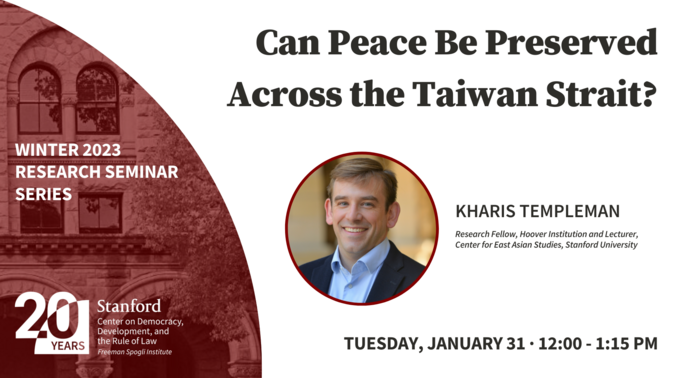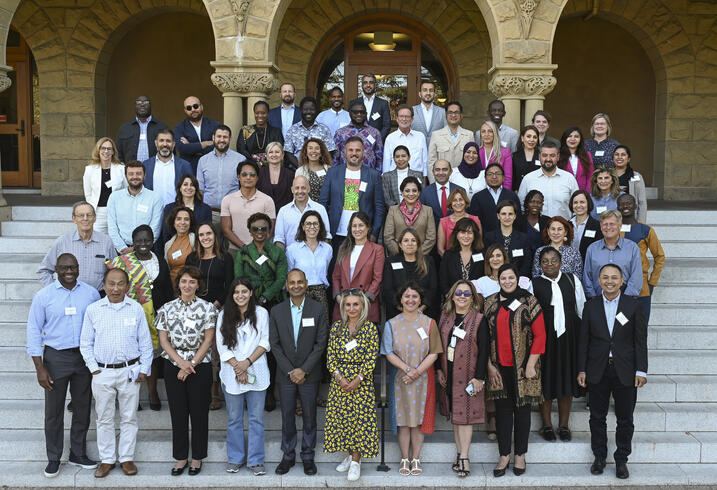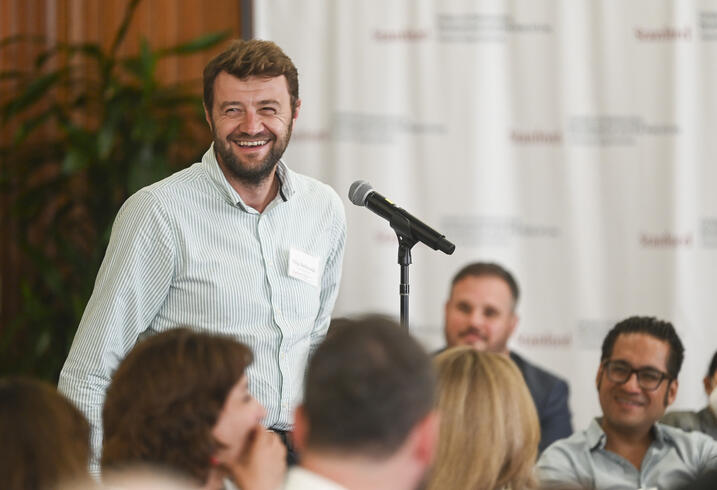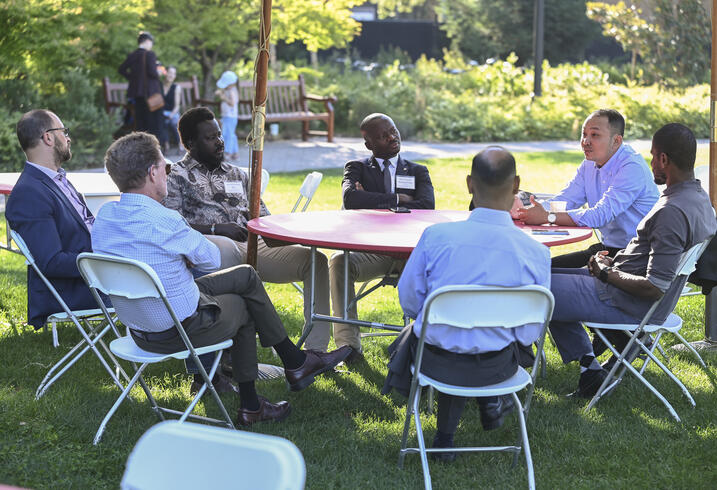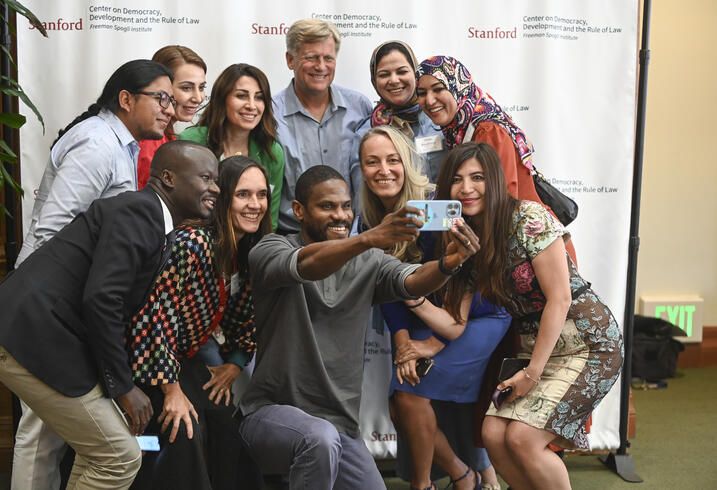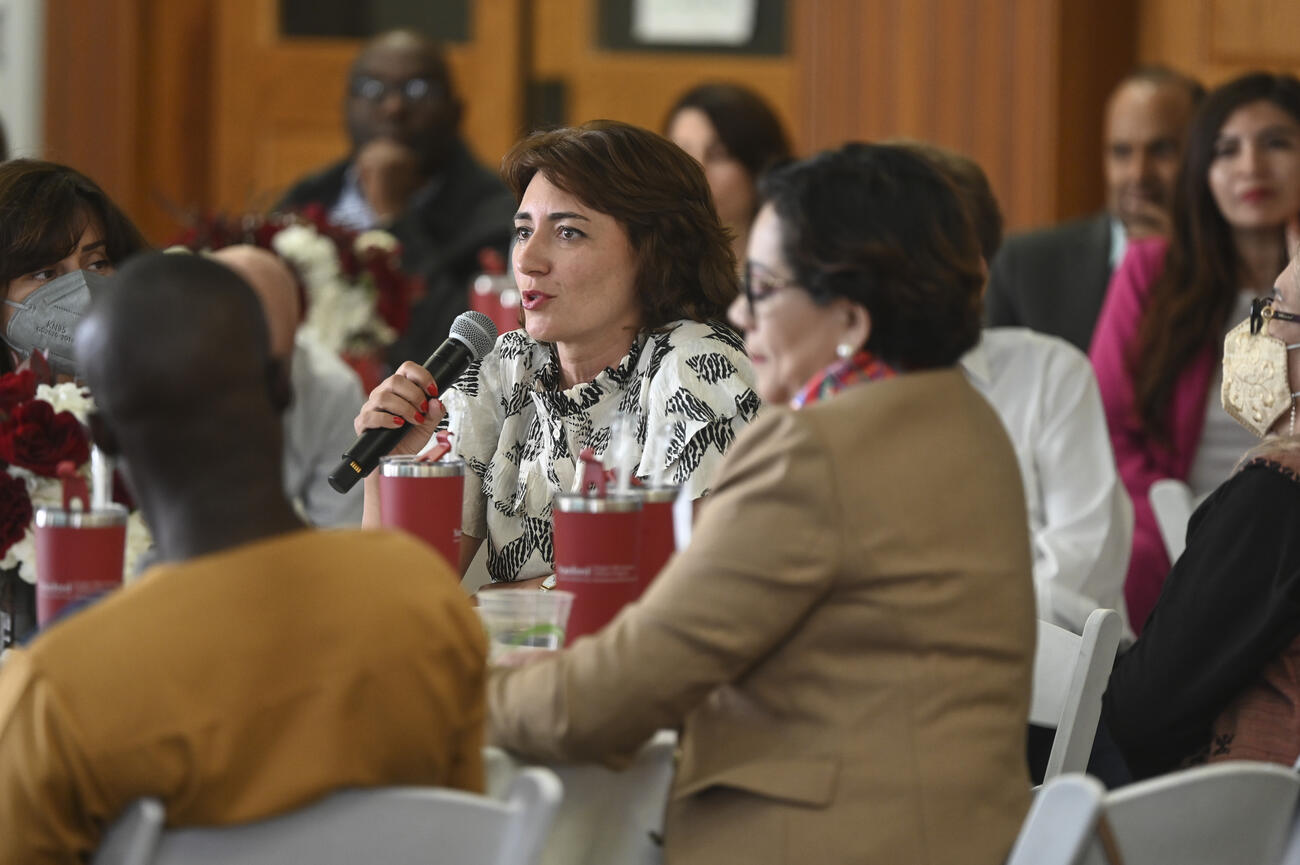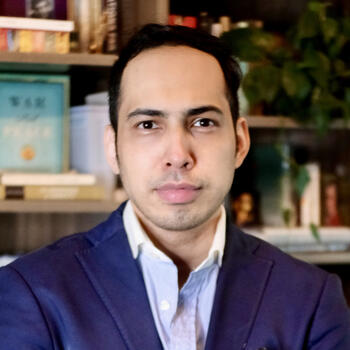Join the Cyber Policy Center and moderator Daniel Bateyko in conversation with Karen Nershi for How Strong Are International Standards in Practice?: Evidence from Cryptocurrency Transactions.
The rise of cryptocurrency (decentralized digital currency) presents challenges for state regulators given its connection to illegal activity and pseudonymous nature, which has allowed both individuals and businesses to circumvent national laws through regulatory arbitrage. Karen Nershi assess the degree to which states have managed to regulate cryptocurrency exchanges, providing a detailed study of international efforts to impose common regulatory standards for a new technology. To do so, she introduces a dataset of cryptocurrency transactions collected during a two-month period in 2020 from exchanges in countries around the world and employ bunching estimation to compare levels of unusual activity below a threshold at which exchanges must screen customers for money laundering risk. She finds that exchanges in some, but not all, countries show substantial unusual activity below the threshold; these findings suggest that while countries have made progress toward regulating cryptocurrency exchanges, gaps in enforcement across countries allow for regulatory arbitrage.
This session is part of the Fall Seminar Series, a months-long series designed to bring researchers, policy makers, scholars and industry professionals together to share research, findings and trends in the cyber policy space. Both in-person (Stanford-affiliation required) and virtual attendance (open to the public) is available; registration is required.
Karen Nershi is a Postdoctoral Fellow at Stanford University's Stanford Internet Observatory and the Center for International Security and Cooperation (CISAC). In the summer of 2021, she completed her Ph.D. in political science at the University of Pennsylvania specializing in the fields of international relations and comparative politics. Through an empirical lens, her research examines questions of international cooperation and regulation within international political economy, including challenges emerging from the adoption of decentralized digital currency and other new technologies.
Specific topics Dr. Nershi explores in her research include ransomware, cross-national regulation of the cryptocurrency sector, and international cooperation around anti-money laundering enforcement. Her research has been supported by the University of Pennsylvania GAPSA Provost Fellowship for Innovation and the Christopher H. Browne Center for International Politics.
Before beginning her doctorate, Karen Nershi earned a B.A. in International Studies with honors at the University of Alabama. She lived and studied Arabic in Amman, Jordan and Meknes, Morocco as a Foreign Language and Area Studies Fellow and a Critical Language Scholarship recipient. She also lived and studied in Mannheim, Germany, in addition to interning at the U.S. Consulate General Frankfurt (Frankfurt, Germany).
Dan Bateyko is the Special Projects Manager at the Stanford Internet Observatory.
Dan worked previously as a Research Coordinator for The Center on Privacy & Technology at Georgetown Law, where he investigated Immigration and Customs Enforcement surveillance practices, co-authoring American Dragnet: Data-Drive Deportation in the 21st Century. He has worked at the Berkman Klein Center for Internet & Society, the Dangerous Speech Project, and as a research assistant for Amanda Levendowski, whom he assisted with legal scholarship on facial surveillance.
In 2016, he received a Thomas J. Watson Fellowship. He spent his fellowship year talking with people about digital surveillance and Internet infrastructure in South Korea, China, Malaysia, Germany, Ghana, Russia, and Iceland. His writing has appeared in Georgetown Tech Law Review, Columbia Journalism Review, Dazed Magazine, The Internet Health Report, Council on Foreign Relations' Net Politics, and Global Voices. He is a 2022 Internet Law & Policy Foundry Fellow.
Dan received his Masters of Law & Technology from Georgetown University Law Center (where he received the IAPP Westin Scholar Book Award for excellence in Privacy Law), and his B.A. from Middlebury College.
